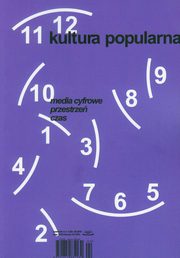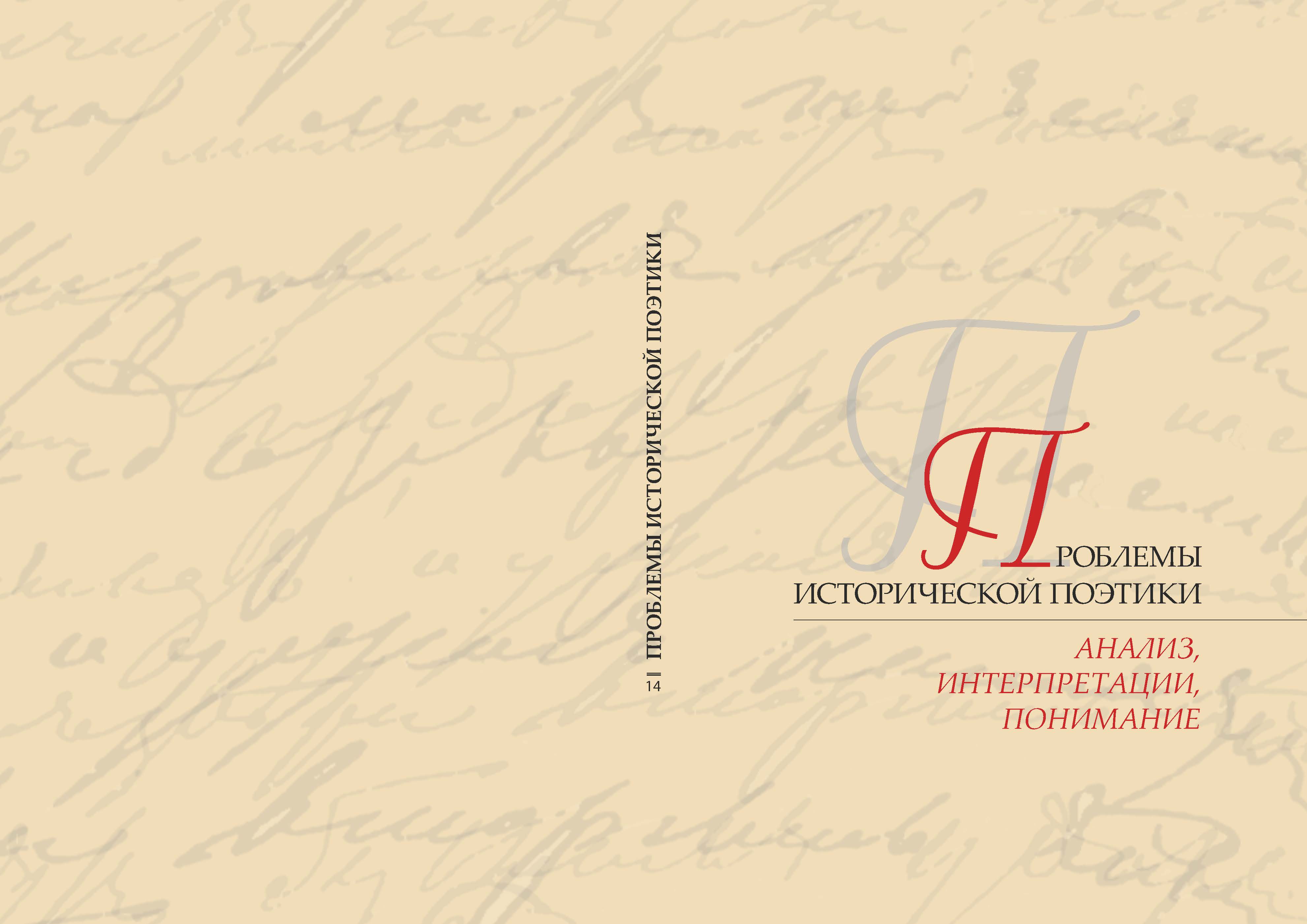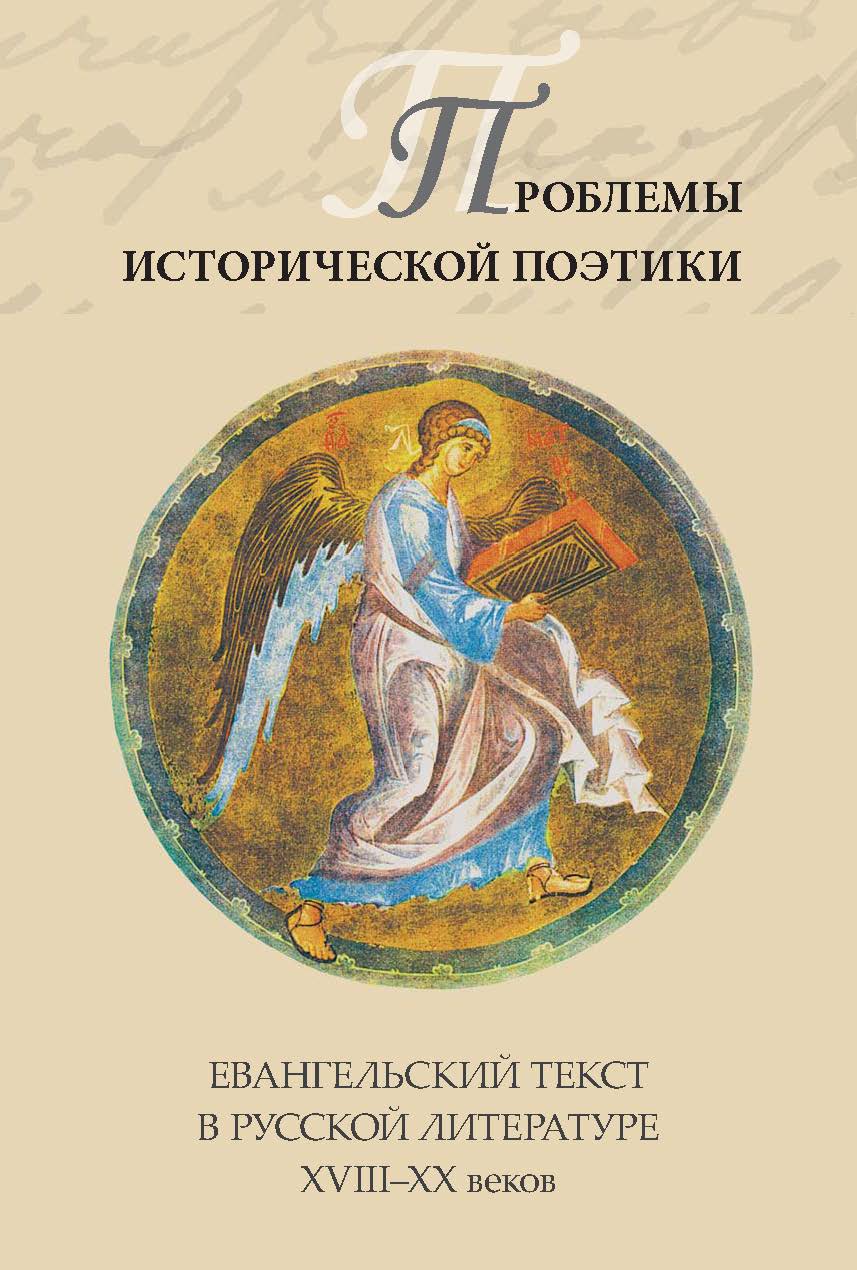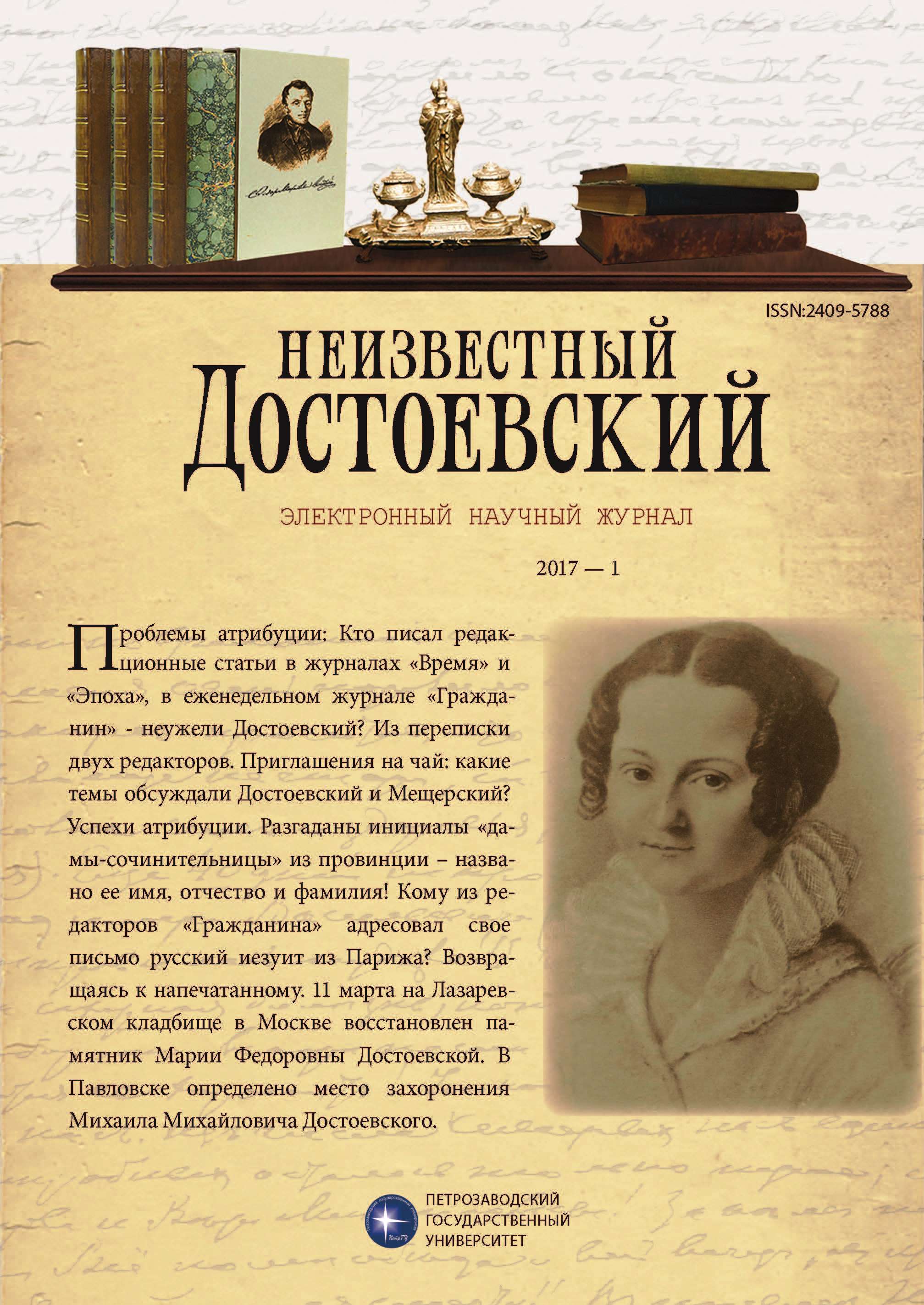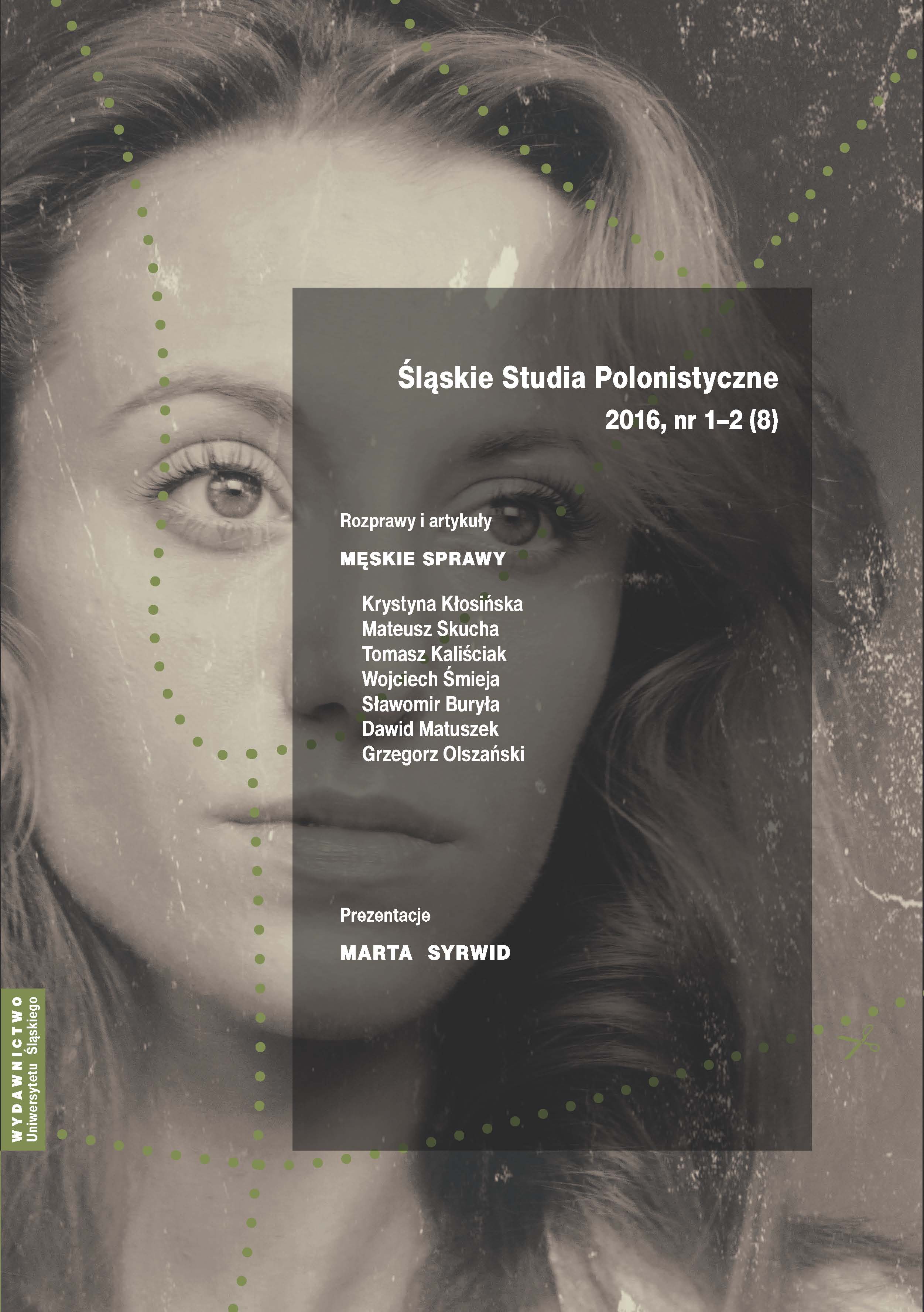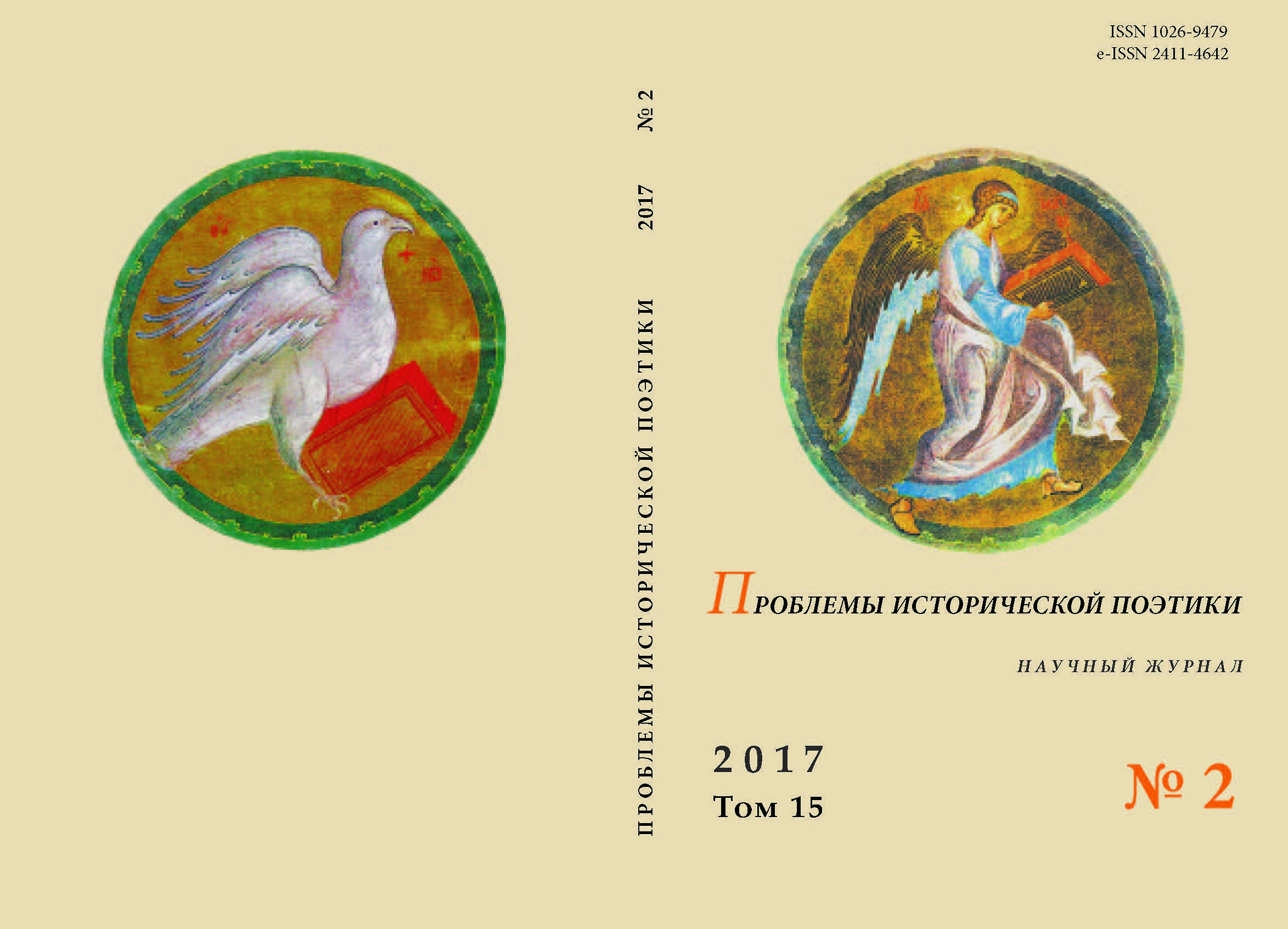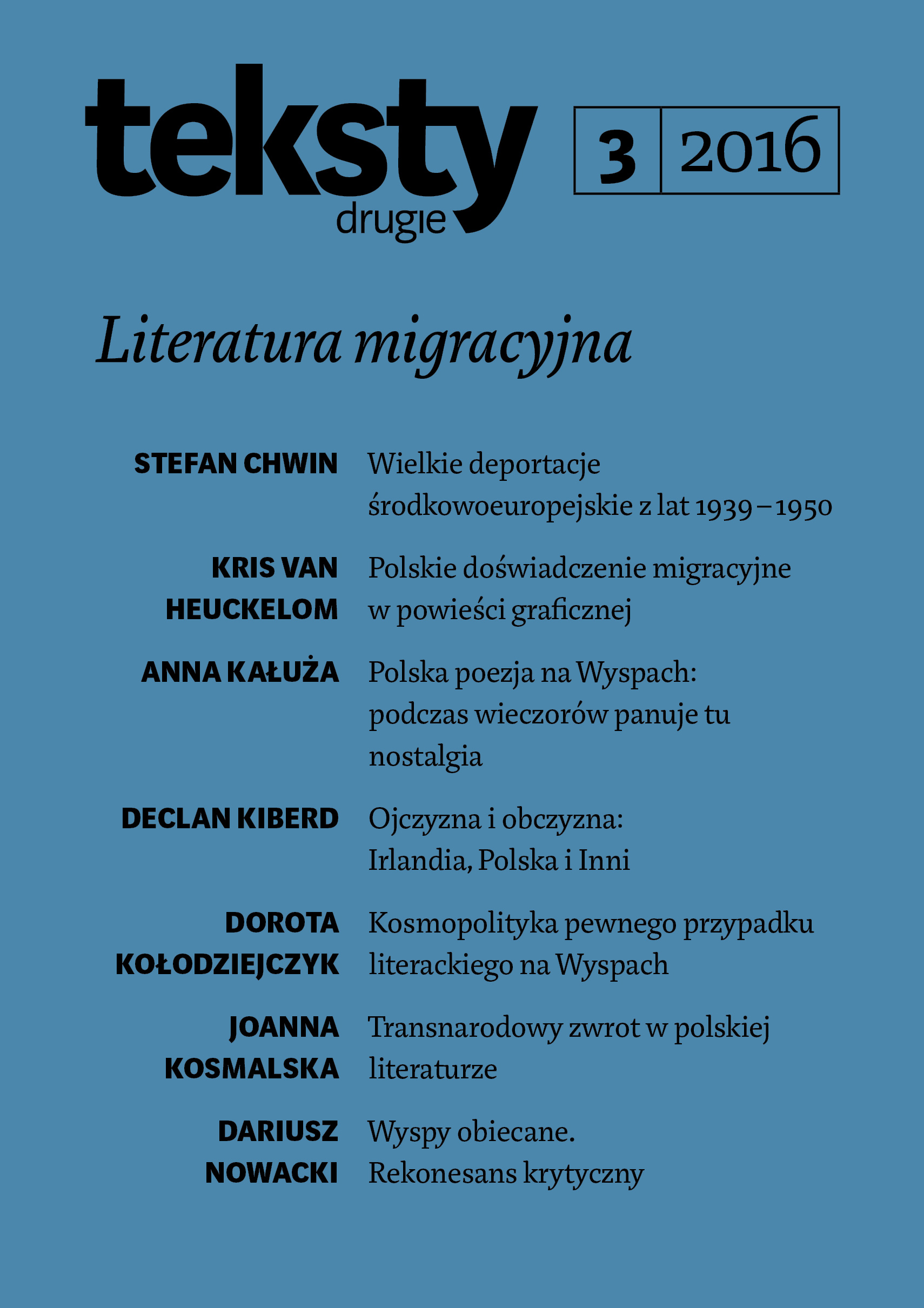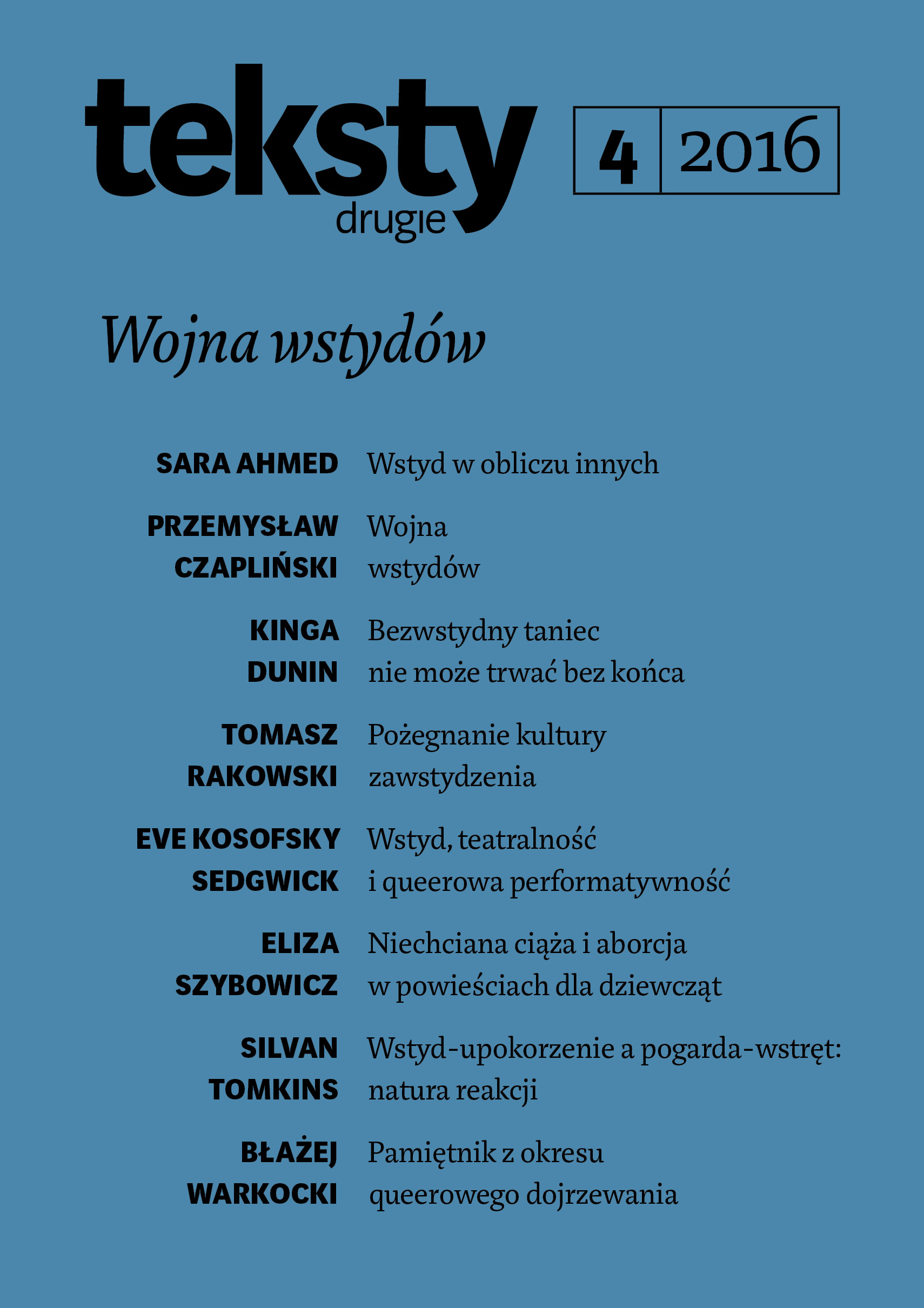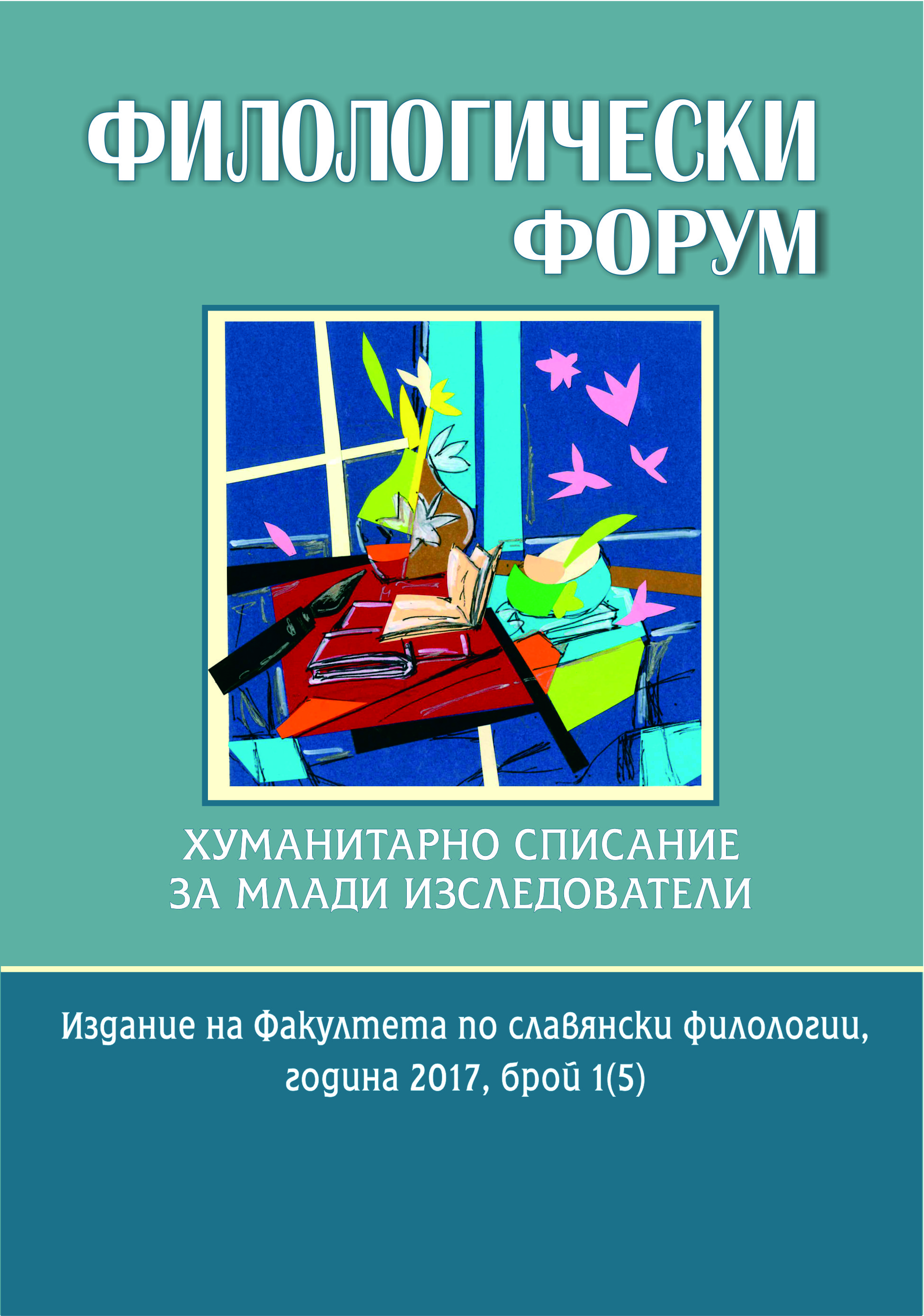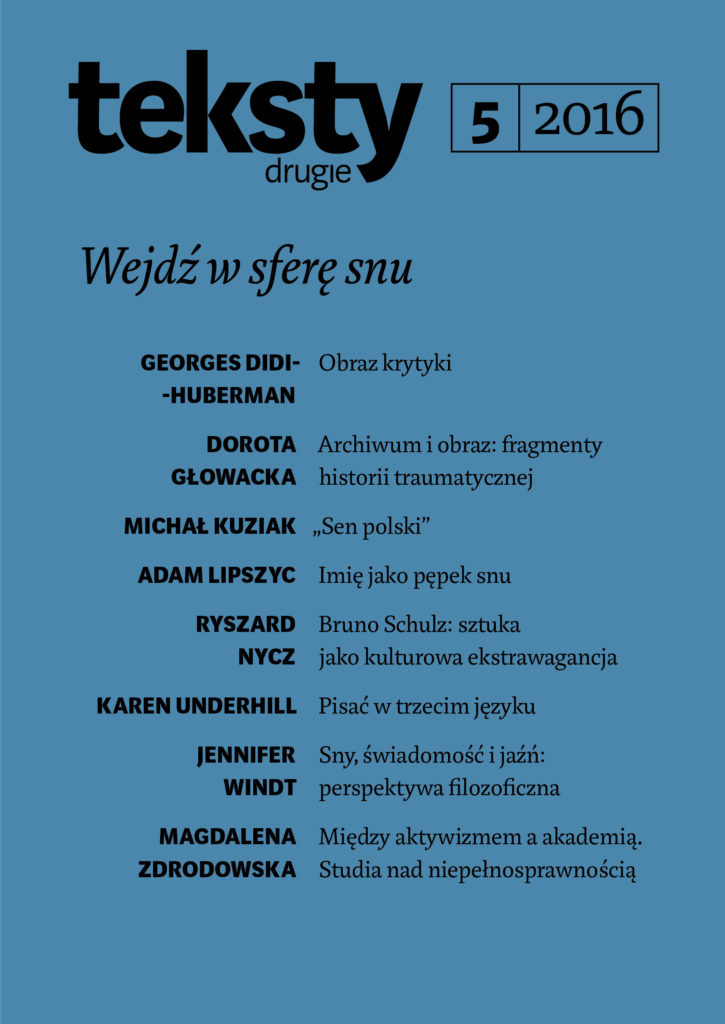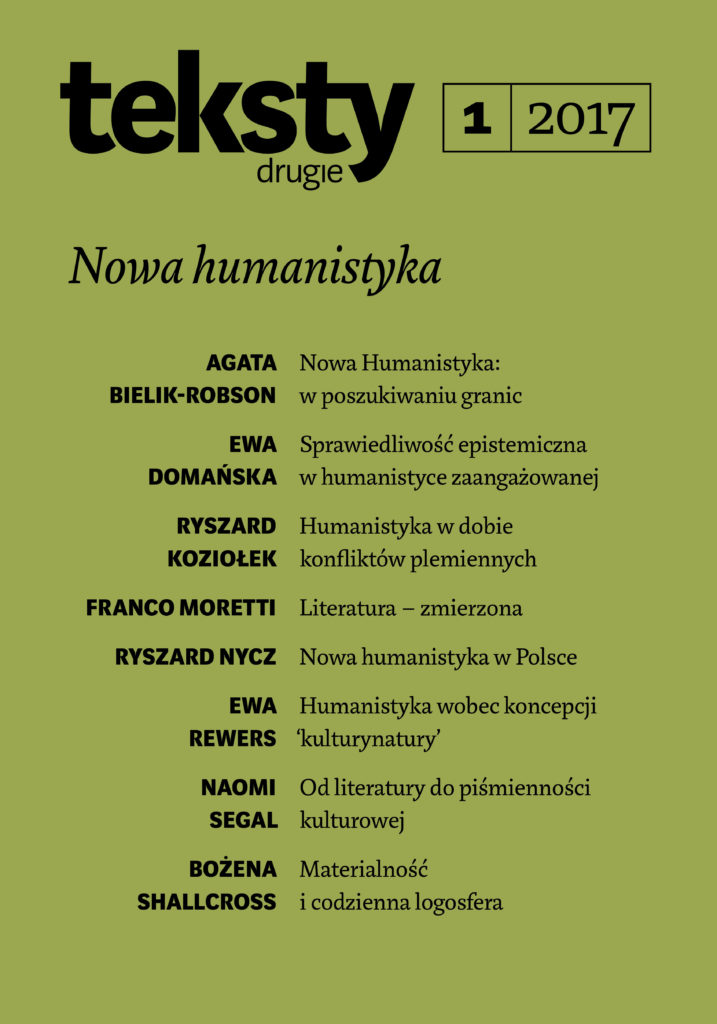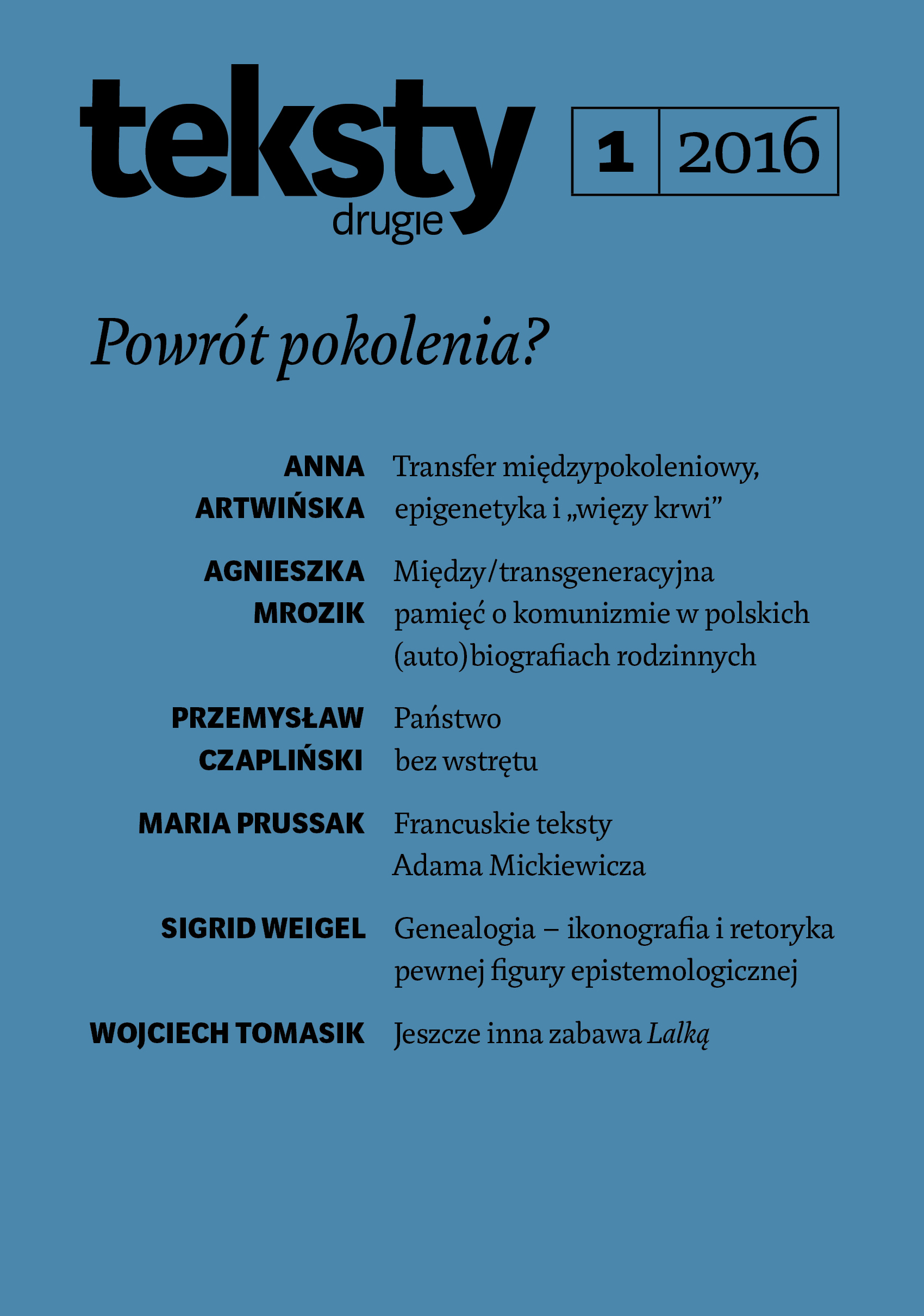
Sensing the meaning, working towards the facts: drugie pokolenie a pamięć o Zagładzie w tekstach Bożeny Keff, Magdaleny Tulli i Agaty Tuszyńskiej
The article explores the concept of generation within the frame of autobiographical and autofictional writing on th Shoah by children of Shoah survivors. The study traces the history of the term „second generation” that has been coined in the 1980s and the implications of this concept for the autobiographical texts. The article states that the term is not only a way to configure (literary) history but also linked to a certain poetics of writing. The author then provides an analysis of the distinctive features of „second generation” texts by Eva Hoffman, Bożena Keff, Magdalena Tulli, and Agata Tuszyńska, highlighting typifications and domains of relevance.
More...
